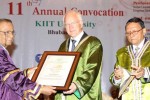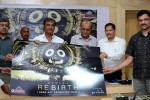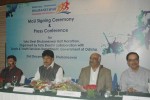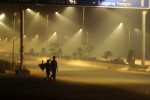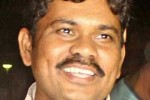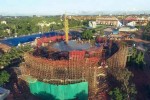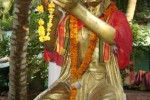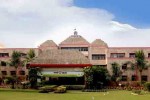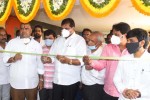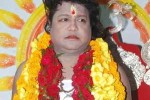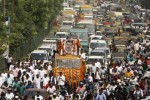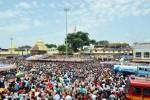Odisha Channel Bureau Raruan (Odisha): On the eve of International Day of Rural Women, 125 single women including widowed, abandoned, divorced, disabled, and the 30 plus never married women from 23 villages of Raruan tehsil of Mayurbhanj received patta to small plots of land through a successfully established institutional mechanism – the Women Support Centres. Through this exclusive program, the district has so far distributed more than 1400 land titles to similar rural women who either live alone, or with their family and extended family.These women are not only poor and alone, but are vulnerable as they are often ill-treated by those on whom they depend for food and shelter.Land can provide opportunity to improve their life and livelihoods.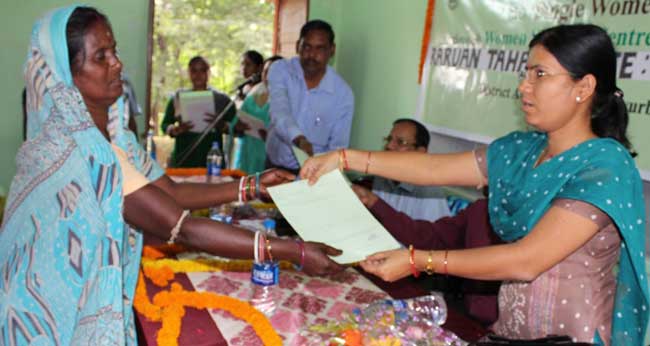 The Women Support Centres are functioning from each tehsil office of the district with support from Landesa, a global non-profit working towards securing land rights of the poorest people.The centres are exclusive cells – a priority help-desk with a woman revenue official who is either a Revenue Inspector or Assistant Revenue Inspector to initiate the process for identifying single dispossessed women in rural areas, filing applications in the name of the identified single women, prioritise the cases for field verification by concerned Revenue Inspector of the area and finally preparing land titles (patta) in the their name.The Women Support Centres are exclusively focusing to address the challenges around inclusion of single women in the state’s land programme.One of the major challenges has been the ‘definition’ of the landless/ homesteadless as per state land laws.The state’s land settlement acts and rules say that the state needs to identify the homesteadless ‘families’ and allocate land to them under state’s land programmes.While landless woman-headed households are easily identified as landless ‘family’; single women living with parents or relatives are not counted as ‘family’ units.Their land rights are subsumed within the rights of the overarching family and these women are not usually considered eligible to get land.On the contrary, these single women do not get their land rights due to deep-seated patriarchy.“Rural women lack awareness about their own land rights; their socio-cultural conditioning push them to a corner in the matters of land rights.The single women therefore remain invisible and unheard.The Women Support Centre programme is exclusively designed to identify and count these ‘invisible’ single women as ‘family units’ by using a robust ‘participatory women-focused enumeration method’.We engaged Anganwadi workers to identify the single women in the villages by door-to-door survey which has helped in locating and processing land allocation to these women,” says Rajesh P.Patil, Collector and District Magistrate, Mayurbhanj.“The revenue officials have been orientated through a series of training programmes facilitated by Landesa to prioritise the cases of single women.Series of camp courts have been organised at RI circle level to settle the cases.Computerised Management Information System (MIS) has been introduced to create tehsil-wise data base of all single women.Unique Access Codes have been assigned to the tehsil and block office for accessing soft-data to process service delivery with regard to land and covering them with social security net including food security, housing and livelihood programmes respectively.While we are targeting to complete the land allocation by the end of December, other entitlements will follow by,” he added.“Landesa is supporting the District Administrations in designing and implementing the Women support Centre programme in Ganjam, Mayurbhanj, Koraput, and Kalahandi, and there are 76 centres functioning across these districts.As per survey by Anganwadi workers in four districts, single women constitute 12% of total rural women population.We believe that the case of other districts would be more or less the same.Addressing the land rights and social security issues of these rural single women remain critical area of concern needing focused attention.In order to institutionalise the automatic inclusion of single women in the state’s land program, the ‘definitions’ of the ‘landless’ and ‘homesteadless’ need to be revised in the respective land laws and rules.The definitions need to include ‘landless/ homesteadless single women – the widowed, divorcees, destitute, disabled and unmarried women above the age of 30 years, living independently or depending on their family and extended family’.Such inclusion would bring opportunity for these single women to live a life of dignity with secure shelter and livelihood,” says Sibabrata Choudhury, Landesa’s Odisha State Director.
The Women Support Centres are functioning from each tehsil office of the district with support from Landesa, a global non-profit working towards securing land rights of the poorest people.The centres are exclusive cells – a priority help-desk with a woman revenue official who is either a Revenue Inspector or Assistant Revenue Inspector to initiate the process for identifying single dispossessed women in rural areas, filing applications in the name of the identified single women, prioritise the cases for field verification by concerned Revenue Inspector of the area and finally preparing land titles (patta) in the their name.The Women Support Centres are exclusively focusing to address the challenges around inclusion of single women in the state’s land programme.One of the major challenges has been the ‘definition’ of the landless/ homesteadless as per state land laws.The state’s land settlement acts and rules say that the state needs to identify the homesteadless ‘families’ and allocate land to them under state’s land programmes.While landless woman-headed households are easily identified as landless ‘family’; single women living with parents or relatives are not counted as ‘family’ units.Their land rights are subsumed within the rights of the overarching family and these women are not usually considered eligible to get land.On the contrary, these single women do not get their land rights due to deep-seated patriarchy.“Rural women lack awareness about their own land rights; their socio-cultural conditioning push them to a corner in the matters of land rights.The single women therefore remain invisible and unheard.The Women Support Centre programme is exclusively designed to identify and count these ‘invisible’ single women as ‘family units’ by using a robust ‘participatory women-focused enumeration method’.We engaged Anganwadi workers to identify the single women in the villages by door-to-door survey which has helped in locating and processing land allocation to these women,” says Rajesh P.Patil, Collector and District Magistrate, Mayurbhanj.“The revenue officials have been orientated through a series of training programmes facilitated by Landesa to prioritise the cases of single women.Series of camp courts have been organised at RI circle level to settle the cases.Computerised Management Information System (MIS) has been introduced to create tehsil-wise data base of all single women.Unique Access Codes have been assigned to the tehsil and block office for accessing soft-data to process service delivery with regard to land and covering them with social security net including food security, housing and livelihood programmes respectively.While we are targeting to complete the land allocation by the end of December, other entitlements will follow by,” he added.“Landesa is supporting the District Administrations in designing and implementing the Women support Centre programme in Ganjam, Mayurbhanj, Koraput, and Kalahandi, and there are 76 centres functioning across these districts.As per survey by Anganwadi workers in four districts, single women constitute 12% of total rural women population.We believe that the case of other districts would be more or less the same.Addressing the land rights and social security issues of these rural single women remain critical area of concern needing focused attention.In order to institutionalise the automatic inclusion of single women in the state’s land program, the ‘definitions’ of the ‘landless’ and ‘homesteadless’ need to be revised in the respective land laws and rules.The definitions need to include ‘landless/ homesteadless single women – the widowed, divorcees, destitute, disabled and unmarried women above the age of 30 years, living independently or depending on their family and extended family’.Such inclusion would bring opportunity for these single women to live a life of dignity with secure shelter and livelihood,” says Sibabrata Choudhury, Landesa’s Odisha State Director.
October 14, 2015
October 14, 2015
0 Comment
Related Articles:
- 5T Secretary reviews progress on CMO district visit grievance redressal
September 13, 2023, 11:47 am
- Patnaik announces Rs 10 lakhs each to Asian Game qualified Odisha athletes
September 13, 2023, 8:13 am
- Odisha CMO reviews grievances related to industrial development
September 12, 2023, 1:10 pm
- Odisha accelerates economic growth with approval of 9 key industrial projects
September 12, 2023, 4:02 am
- Odisha government is committed to welfare of animals: Patnaik
September 8, 2023, 4:18 pm
- Naveen Patnaik felicitates visually-challenged cricket players
September 8, 2023, 2:59 pm
- Odisha panchayat polls: Landslide victory for BJD, BJP distant second
March 1, 2022, 12:33 pm
- Hemananda Biswal: An inspiration for tribal leaders of Odisha
February 26, 2022, 5:17 am
- Hemananda Biswal passes away, to be cremated at his native place
February 26, 2022, 5:10 am
- Urban civic polls in Odisha to be held on March 24
February 25, 2022, 6:03 pm
Breaking News:
- Conservation bid to save 'rare' black poplar
December 21, 2024, 7:27 am - US Senate approves Social Security change despite fiscal concerns
December 21, 2024, 5:23 am - Senate passes Social Security benefits boost for many public service retirees
December 21, 2024, 1:48 am - Homeowner ends up in jail after calling police to remove squatter living inside her house
December 21, 2024, 12:46 am - Elon Musk Crashing Trump’s Jeff Bezos Dinner at Mar-a-Lago Mocked as ‘Deranged’
December 21, 2024, 12:34 am - New damage delays I-40 reopening in North Carolina closed by Helene
December 21, 2024, 12:34 am - NTSB trying to determine why tractor-trailer stopped on train tracks before deadly West Texas crash
December 20, 2024, 11:53 pm - Planes Collide on Airport Runway
December 20, 2024, 10:39 pm - What we know about the suspect in deadly car crash at German Christmas market
December 20, 2024, 10:35 pm - IRS sending up to $1,400 to 1 million people. Here's who qualifies.
December 20, 2024, 9:52 pm



